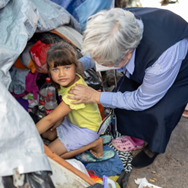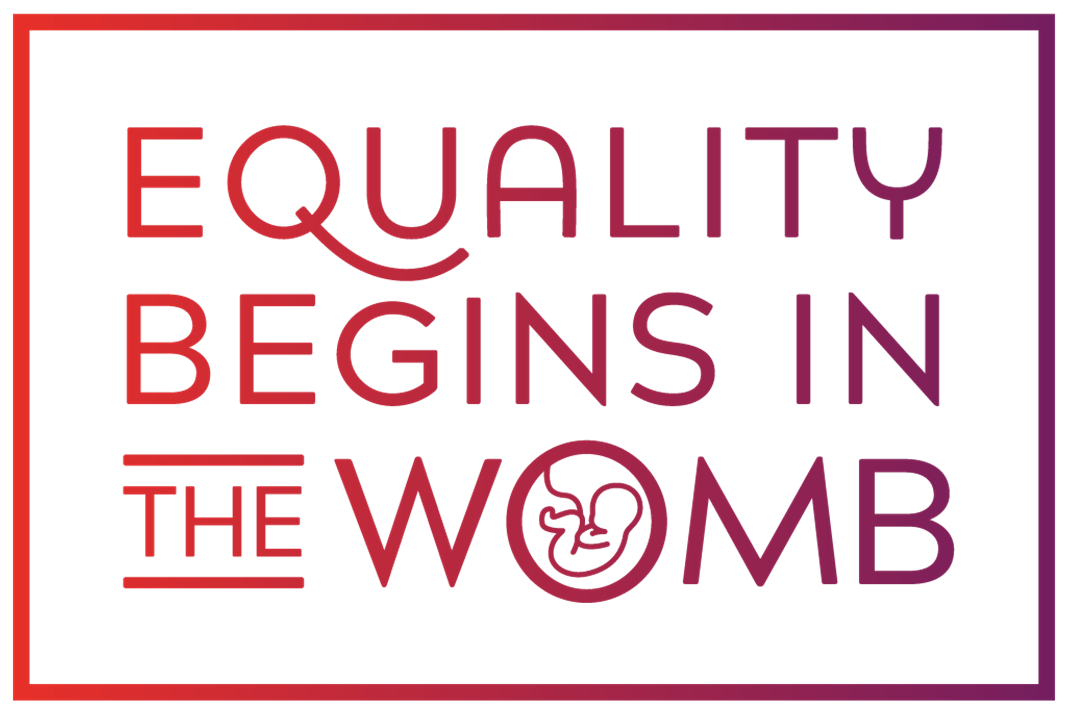SOLUTIONS FOR NON-PROFITS › GOVERNMENTS › BUSINESSES ›
GUIDING PRINCIPLES
DRIVEN BY FAITH AND REASON
All of us have nstructions for how to live. We do our best to follow them.
In Matthew 25: 14-46, Jesus tells us to make the best use of our talents to help the least of our brothers. This isn't just "suggested," it's expected of all people. We've been blessed with opportunities that have led to a wealth of experience and expertise, and it's incumbent upon us to apply them for a greater good. Psalms 139: 13-14, which discusses the uniqueness and dignity of every human life, provides further direction on how to approach our neighbors. After much discernment, we've believe we've received a mission: To Elevate People and Communities by strengthening the organizations that serve them.
Catholic Social Teaching (CST) is
the blueprint we're following.
Solutions for Non-profits › Governments › Businesses ›
GUIDING PRINCIPLES
DRIVEN BY FAITH AND REASON
All of us have clear instructions for how to live
our lives. We're trying our best to follow through.
In Matthew 25: 14-46, Jesus tells us to make the best use of our talents to help the least of our brothers. This isn't just "suggested," it's expected of all people. We've been blessed with opportunities that have led to a wealth of experience and expertise, and it's incumbent upon us to apply them for a greater good. Psalms 139: 13-14, which recognizes the uniqueness and dignity of every human life, provides further direction on how to approach our neighbors. After much discernment, we've believe we've received our mission: To Elevate People and Communities by strengthening the organizations that serve them.
Catholic Social Teaching (CST) is the blueprint
for what we do, who we serve, and how we work.
GUIDING PRINCIPLES
DRIVEN BY FAITH AND REASON
All of us have clear instructions for how to live
our lives. We're trying our best to follow through.
In Matthew 25: 14-46, Jesus tells us to make the best use of our talents to help the least of our brothers. This isn't just "suggested," it's expected of all people. We've been blessed with opportunities that have led to a wealth of experience and expertise, and it's incumbent upon us to apply them for a greater good. Psalms 139: 13-14, which recognizes the uniqueness and dignity of every human life, provides further direction on how to approach our neighbors. After much discernment, we've believe we've received our mission: To Elevate People and Communities by strengthening the organizations that serve them.
Catholic Social Teaching (CST) is the blueprint
for what we do, who we serve, and how we work.
GUIDELINES
›
CATHOLIC SOCIAL TEACHING
We believe our calling is best expressed in Catholicism, and we embrace our Catholic faith as fundamental to our business. In part, this means we have committed to following the social teachings of the Catholic Church. The United States Conference of Catholic Bishops (USCCB) describes Catholic Social Teaching (CST) as comprises several key themes, as shown below, and associates them with the principle of Solidarity.
Seven Themes of CST

Life and Dignity of the Human Person
CST starts with the fact that, from conception to natural death, every human being is a person with inherent dignity. Individuals should embrace and experience their own fundamental value, and society, both through human interactions and public policy, should treat others in ways that recognize this. We have a responsibility to love our our neighbors, willing the good of the other. It is from this principle that every other element of CST is derived.
Family, Community, and Participation
Human Rights and Responsibilities
Option for the Poor and Vulnerable
Dignity of Work and Workers' Rights
Solidarity as One Human Family
ButtonCall to Care for God's Creation
ButtonWe believe our calling is best expressed in Catholicism, and we embrace our Catholic faith as fundamental to our business. In part, this means we have committed to following the social teachings of the Catholic Church. The United States Conference of Catholic Bishops (USCCB) describes Catholic Social Teaching (CST) as comprises several key themes, as shown below, and associates them with the principle of Solidarity.
Seven Themes of CST

Life and Dignity of the Human Person
CST starts with the fact that, from conception to natural death, every human being is a person with inherent dignity. Individuals should embrace and experience their own fundamental value, and society, both through human interactions and public policy, should treat others in ways that recognize this. We have a responsibility to love our our neighbors, willing the good of the other. It is from this principle that every other element of CST is derived.
Family, Community, and Participation
Human Rights and Responsibilities
Option for the Poor and Vulnerable
Dignity of Work and Workers' Rights
Solidarity as One Human Family
ButtonCall to Care for God's Creation
ButtonThese themes link to the idea of Subsidiarity, an important concept that means decisions and plans "should be made [and implemented] at the lowest level possible, with higher... authorit[ies] intervening only if... lower levels [can't] accomplish a task as well or as efficiently." This makes sense, since the unique challenges and conditions individual communities face often don't have monolithic solutions.
These themes are linked to the idea of Subsidiarity, an important concept that means decisions and plans "should be made [and implemented] at the lowest level possible, with higher... authorit[ies] intervening only if... lower levels [can't] accomplish a task as well or as efficiently." This makes sense, since the unique challenges and conditions individual communities face often don't have monolithic solutions.
IMPLICATIONS
›
WHAT, WHO, AND HOW
CST guides causes our work advances. We focus on organizations that:
- Help people get through crisis situations and get back on their feet
- Support those with chronic needs that are obstacles to self-sufficiency
- Lift people up by empowering them and connecting them to real opportunity
- Strengthen families and build up the communities in which they live
- Promote and protect the lives of the most vulnerable members of society
- Work to reclaim and conserve the environment and its natural resources
- Advance freedom and legimate human rights in the US and abroad
Missions, Clients, and Approaches
CST gives life to our goal of elevating people and communities. First of all, it affects our focus the challenges we seek to mitigate or eliminate. We want to solve pressing issues like hunger, homelessness, affordable working class housing, lack of access to quality health care, financial insecurity, mental and behavioral health challenges, access to education, illiteracy, un- and under-employment, crisis pregnancies, family struggles, and economically distressed and unsafe communities, among others. Individuals and groups affected by challenges in such areas are diverse, but they have in common the fact that they are our neighbors who need our help. We are all obligated to will and work for their good.
Who we serve is also affected by CST. We strengthen the organizations best positioned to support and elevate people and communities, at the levels of society that enable the most efficient and effective use of resources to provide the right assistance to those in need, when it's most necessary. Our clients are typically non-profits, governments, and businesses that serve localities and/or regions, because they know the issues, the people they affect, and how they manifest locally. While it's not always the case, they can usually plan and deliver tailored services to their communities better than, for example, global and national entities that think they can fix problems with "one size fits all" solutions.
Finally, it's the "spirit of CST" that guides a key aspect of our philosophy. We're confident in our abilities, but we understand humility is essential. We don't have all of the answers ourselves, especially given the unique characteristics and nuances of local contexts, and we don't pretend to. In adition, we know we share common goals with our clients, because we exist to support their causes. These beliefs lead us to collaboration as a core value. It's by working together, combining our subject matter expertise and cross-sector experiences with our clients' situational knowledge, that we can make the most progress towards meeting their constituents' needs and solving the underlying socio-economic problems.
CST guides the causes our work advances. For example, we focus on organizations that:
- Help people get through crisis situations and get back on their feet
- Support those with chronic needs that are obstacles to self-sufficiency
- Lift people up by empowering them and connecting them with real opportunity
- Strengthen families and build up the communities in which they live
- Promote and protect the lives of the most vulnerable members of society
- Work to reclaim and conserve the environment and its natural resources
- Advance freedom and legimate human rights in the US and abroad
Missions, Clients, and Approaches
CST gives life to our goal of elevating people and communities. First of all, it affects our focus the challenges we seek to mitigate or eliminate. We want to solve pressing issues like hunger, homelessness, affordable working class housing, lack of access to quality health care, financial insecurity, mental and behavioral health challenges, access to education, illiteracy, un- and under-employment, crisis pregnancies, family struggles, and economically distressed and unsafe communities, among others. Individuals and groups affected by challenges in such areas are diverse, but they have in common the fact that they are our neighbors who need our help. We are all obligated to will and work for their good.
Who we serve is also affected by CST. We strengthen the organizations best positioned to support and elevate people and communities, at the levels of society that enable the most efficient and effective use of resources to provide the right assistance to those in need, when it's most necessary. Our clients are typically non-profits, governments, and businesses that serve localities and/or regions, because they know the issues, the people they affect, and how they manifest locally. While it's not always the case, they can usually plan and deliver tailored services to their communities better than, for example, global and national entities that think they can fix problems with "one size fits all" solutions.
Finally, it's the "spirit of CST" that guides a key aspect of our philosophy. We're confident in our abilities, but we understand humility is essential. We don't have all of the answers ourselves, especially given the unique characteristics and nuances of local contexts, and we don't pretend to. In adition, we know we share common goals with our clients, because we exist to support their causes. These beliefs lead us to collaboration as a core value. It's by working together, combining our subject matter expertise and cross-sector experiences with our clients' situational knowledge, that we can make the most progress towards meeting their constituents' needs and solving the underlying socio-economic problems.
COMMUNION
›
AN ECONOMY FOR ALL

We're committed to the Economy of Communion (EoC), a global initiative aimed at addresing social issues through business practices that prioritize community welfare and shared values. With roots in CST, it was first presented in 1991 in São Paulo, Brazil as a mandate to create a new economic model integrating business success with social responsibility. Businesses are encouraged to allocate a percentage of their profits to support those in need, and to foster a culture of giving within their communities. In some ways, the EoC is similar to the Certified B Corporation® movement, so it's natural that we adopt its principles.
Key EoC Principles
The following are the essential responsibilites of companies that designate themselves as EoC participants:
- Community Focus—EoC businesses are integral parts of their communities, aiming to address social problems by creating meaningful jobs and supporting local initiatives focused on improving people's lives and the places in which they live. We do this primarily by working with organizations alleviating poverty, helping in crisis, etc., and businesses that provide opportunities in under-served areas.
- Profit Sharing—A significant aspect of the EoC is the commitment of businesses to share their profits for three main objectives: (1) Aiding the needy, (2) Developing the business, and (3) Promoting a culture of communion. We are firmly committed to this principle—in fact, we go beyond profit and allocate a percentage of our gross revenue to non-profits that address the issues that concern us the most.
- Human-Centered Approach—The EoC emphasizes the importance of relationships and the well-being of all stakeholders, prioritizing human dignity over profit. This mirrors the Catholic business ethic of seeking only reasonable profits to keep ourselves whole and re-invest in our business. Our ultimate goal as a company is to help people, not to make excessive amounts of money off of their problems.

We're committed to the Economy of Communion (EoC), a global initiative aimed at addresing social issues through business practices that prioritize community welfare and shared values. With roots in CST, it was first presented in 1991 in São Paulo, Brazil as a mandate to create a new economic model integrating business success with social responsibility. Businesses are encouraged to allocate a percentage of their profits to support those in need, and to foster a culture of giving within their communities. In some ways, the EoC is similar to the Certified B Corporation® movement, so it's natural that we adopt its principles.
Key EoC Principles
The following are the essential responsibilites of companies that designate themselves as EoC participants:
- Community Focus—EoC businesses are integral parts of their communities, aiming to address social problems by creating meaningful jobs and supporting local initiatives focused on improving people's lives and the places in which they live. We do this primarily by working with organizations alleviating poverty, helping in crisis, etc., and businesses that provide opportunities in under-served areas.
- Profit Sharing—A significant aspect of the EoC is the commitment of businesses to share their profits for three main objectives: (1) Aiding the needy, (2) Developing the business, and (3) Promoting a culture of communion. We are firmly committed to this principle—in fact, we go beyond profit and allocate a percentage of our gross revenue to non-profits that address the issues we're concerned about the most.
- Human-Centered Approach—The EoC emphasizes the importance of relationships and the well-being of all stakeholders, prioritizing human dignity over mere profit. This mirrors the Catholic business ethic of seeking only reasonable profits to keep ourselves whole and re-invest in our business. Our ultimate goal as a company is to help people, not to make excessive amounts of money off of their problems.





















